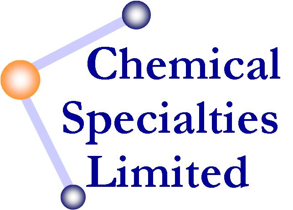
Chemical Specialties
Chemical Specialties is a world-class contract manufacturer based in Singapore with strong operating experiences in the U.S.A. We specialize in Batch reaction chemistries, alkoxylation, distillation and specialty blending.
The company was founded 15 years ago in Singapore to provide world-class contract manufacturing to MNCs. We help companies grow their manufacturing footprint in Asia and be positioned to tap into the fast-developing APAC and Middle Eastern markets with minimal capital investment. CSL leverages Singapore’s unique trade and logistics connectivity, political and economic stability, as well as its strong IP protection. We have invested in the highest levels of quality, safety, and great people. Recently, our facility was certified for Major Hazard Installation (MHI) compliance, a key milestone standard for the process industry.
CSL offers large -scale manufacturing capacities for specialty products. Our customers are typically multi-nationals with a global presence who search for a middle-ground option between shipping their products from overseas or investing in local production facilities to serve the region. Investing in large-scale production is often in excess of US$60+ million, and building a new plant can take 2-3 years. We are able to help our customers establish their regional product availability, manufactured and supplied from Singapore, typically within 1 year from the project sign-on.
Covid-19 followed by recent global instability has severely disrupted the global supply chain in terms of supply security, transportation cost and reliability. Over the past two years we saw a breaking down of the global supply chain, which resulted in significant time and price pressures on imports coming from Europe and the US that created huge supply gaps with high uncertainties. Adopting an “in the region, for the region” strategy, many companies are redesigning their supply chains footprint to become more regionalized. We are observing a continuing trend in supply chain transformation, which means not only localizing the production supply base, but also the raw materials supply chain, without which local manufacturing would make little sense.
We see the conversation on supply chain transformation gaining momentum and we are of course happy to work with our customers in these efforts, and continuing to engage as they develop a more resilient manufacturing footprint to grow their businesses in a global economy.
Regionalization / localization is becoming a new norm, challenging global supply chain leaders to redesign and build more resilient footprints for the long haul. With this new order come new opportunities and adaptations. Exciting times ahead to see business footprint transformations re-establishing a new regional supply/ demand equilibrium.














